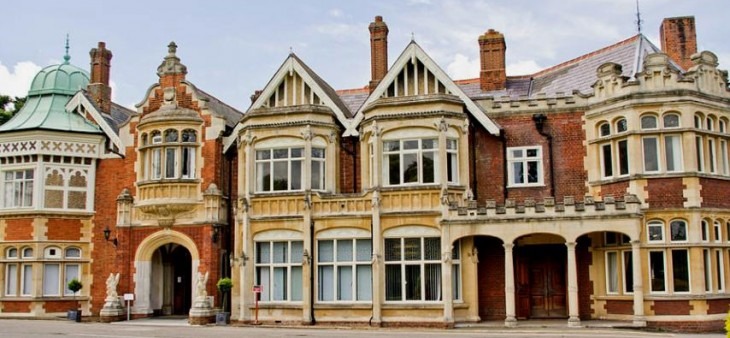
Could there be a more appropriate setting for a digital technology institute than at the home of the World War Two codebreakers, Bletchley Park?
There a few buildings that have played such a vital part in shaping 20th‐century history than Block D at Bletchley Park. Famed for housing the wartime team which broke the German Enigma encryption system, plans are afoot to transform the site into an Institute of Digital Technology.
Gordon Welchman, the maths genius who made a critical tweak to Alan Turing’s deciphering machine, had his office at the heart of the block’s maze of corridors and windowless rooms. So it is rather fitting that some £20million of government funding has been applied for by Milton Keynes College.
The College is working closely with businesses, including Microsoft and KMPG, to help transform the derelict and asbestos‐ridden site. The building was not restored after Bletchley was declared a conservation area in the early 1990s and is not open to the public. Equipment collects dust and paints peels off the ceilings.
With a slogan “From breaking code to making code” the Bletchley proposal is to aid in stemming a chronic shortage of young people qualified in Stem subjects — science, technology, engineering and maths — poses perhaps the biggest threat to the future of the economy.
Improving these skills is as important to start‐ups as to corporations. “It’s vital for the skills shortage that we deliver our plan quickly because there is an urgent need,” said Julie Mills, Milton Keynes College principal and chief executive.
Sadly employers are struggling to find qualified workers. This is despite the number of vacancies tipping an all‐time high, according to the Office for National Statistics. The CBI business lobby group estimates 69% of companies are not confident they will be able to fill their high‐skilled jobs in future.
Projects such as the one planned at Bletchley Park will clearly be of huge benefit. Excitingly if the final application is approved, work will begin early next year, and students will be on site by 2020.
One of the institutes’ main ambitions will be to address the lack of female participation in the so‐called digital economy — fitting given the large number of women who worked at Bletchley during the war. Young women don’t typically see digital as their career ambition, but they do pursue things like the professions and creative industries, where there are huge digital elements,” said Mills.
Courses in cyber‐security, software engineering and games development will be on offer.
It is undoubtedly an attractive proposition for large companies such as KPMG “We’ve historically recruited maths graduates from the leading universities,” said Ben McDonald, KPMG’s senior partner in Milton Keynes. “We now recognise that people will come through from different backgrounds with digital skills.”
The idea is that the history of Bletchley Park and Block D will inspire young people to enrol on courses they would not previously have considered and hopefully inspire the next Turing or Welchman.
“What happened in Block D was the production of vital intelligence that made a war-winning difference,” said Iain Standen, chief executive of the Bletchley Park Trust. “We want to put it to great use again.”
